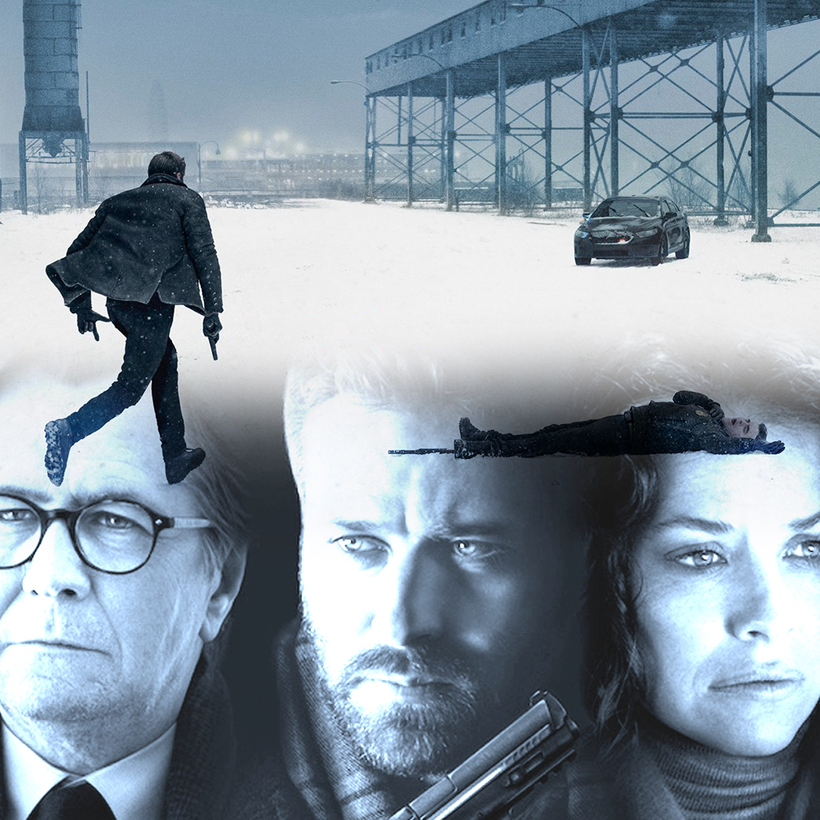It wasn’t that long ago that America’s opioid crisis and conniving profiteers such as the Sackler family (owners of Purdue Pharma) and McKinsey & Company, both of whom stand accused of creating it, were at the center of public outrage. A constellation of crises that dominated 2020 pushed it to the side. But now, thanks in part to Nicholas Jarecki, it receives prominent placement on big and small screens alike. Crisis, his new thriller, follows three stories that are all loosely—and then tightly—connected. There’s the university prof (Gary Oldman) who uncovers the truth about a new and allegedly non-addictive painkiller. There’s the architect (Evangeline Lilly) struggling to discover the truth about her son’s disappearance. And then there’s the federal agent posing as a drug trafficker who grapples with bringing down the system (Armie Hammer, before he decided to toy with bringing down his career).
“It’s such a complicated topic,” Jarecki tells me. “I wondered: Could we look at it from all angles?”
America’s opioid crisis and conniving profiteers such as the Sackler family and McKinsey & Company, who stand accused of creating it, were at the center of public outrage.
Jarecki started thinking about making a film that captured Big Pharma’s manipulations after the release of Arbitrage, the 2012 thriller he wrote and directed. Both a critical and commercial success, it earned its star, Richard Gere, a Golden Globe nomination and cemented its director’s reputation. Jarecki, a native New Yorker, has been involved in the film industry since he was a 16-year-old technical consultant on the set of Hackers. He comes from a talented family: His mother, Marjorie Heidsieck, is a successful commodities trader and attorney. His father, Henry Jarecki, produced movies and theater productions, introduced computers to the world of commodities trading, and was a licensed psychiatrist. Andrew, his half-brother, is a successful filmmaker, as is his brother Eugene, while another brother, Thomas, works in finance.

After Arbitrage, Jarecki had planned on making a historical epic as his next project. But as the ravages of opiates on American society became more and more apparent, he shifted gears. Within six months, he had finished the script for Crisis.
“Society is angry, and we have a right to be angry,” says Jarecki.
Oldman signed on immediately as both star and executive producer. An ensemble cast was promptly assembled. “Everyone has someone they know who’s been involved with opioids or other substances,” he says. “[The film] took on relevance for the cast, and you can see that in their performances. They care about it.”
Crisis was filmed in and around Montreal in 2019, and Jarecki had conceived of the film with the city and its criminal underbelly in mind.
“You hear about Mexico all the time” as the setting for drug lords. “But you’ve never seen a crime saga about Canada,” he says. “Montreal has a rich gangster history.” A helicopter chase was filmed in minus-30-degree weather, but that was a relatively small struggle when compared with the challenges of finishing a film in a pandemic. All of the postproduction work was conducted remotely, which means Jarecki spent long hours at his house in Los Angeles, sitting inside a blacked-out tent, staring at a monitor, muttering things like “We need more timpani. What have you done?” It was, he says, a metaphor for these times.
Crisis will be released in theaters and for home viewing just a week apart, a technique that Jarecki pioneered with Arbitrage, which was among the most successful V.O.D. releases of all time. He also has several other films in development—and, like the rest of us, one preoccupying concern: “I’m just trying to stay alive,” he says with a laugh.
Ashley Baker is the Style Editor for air mail

